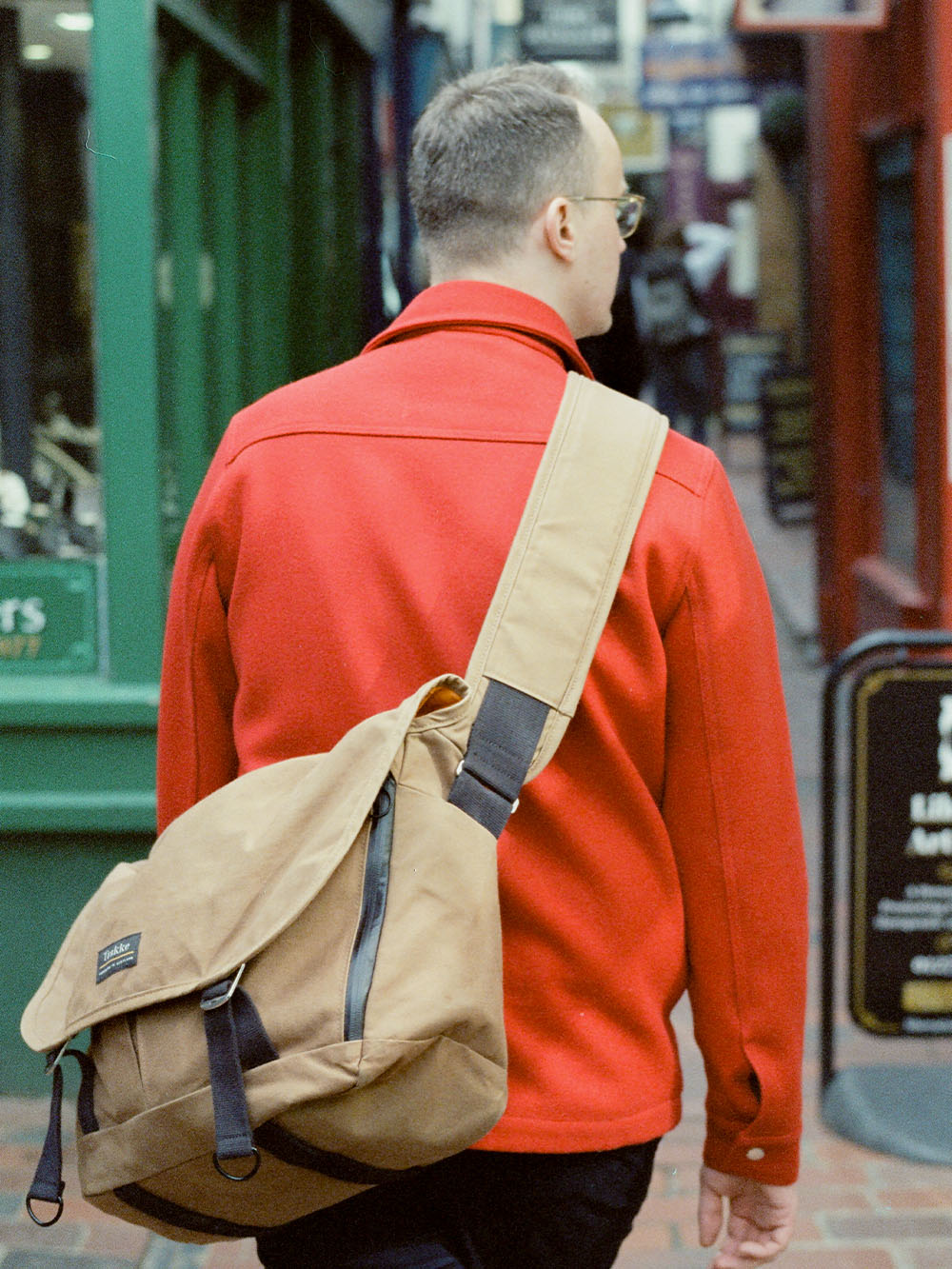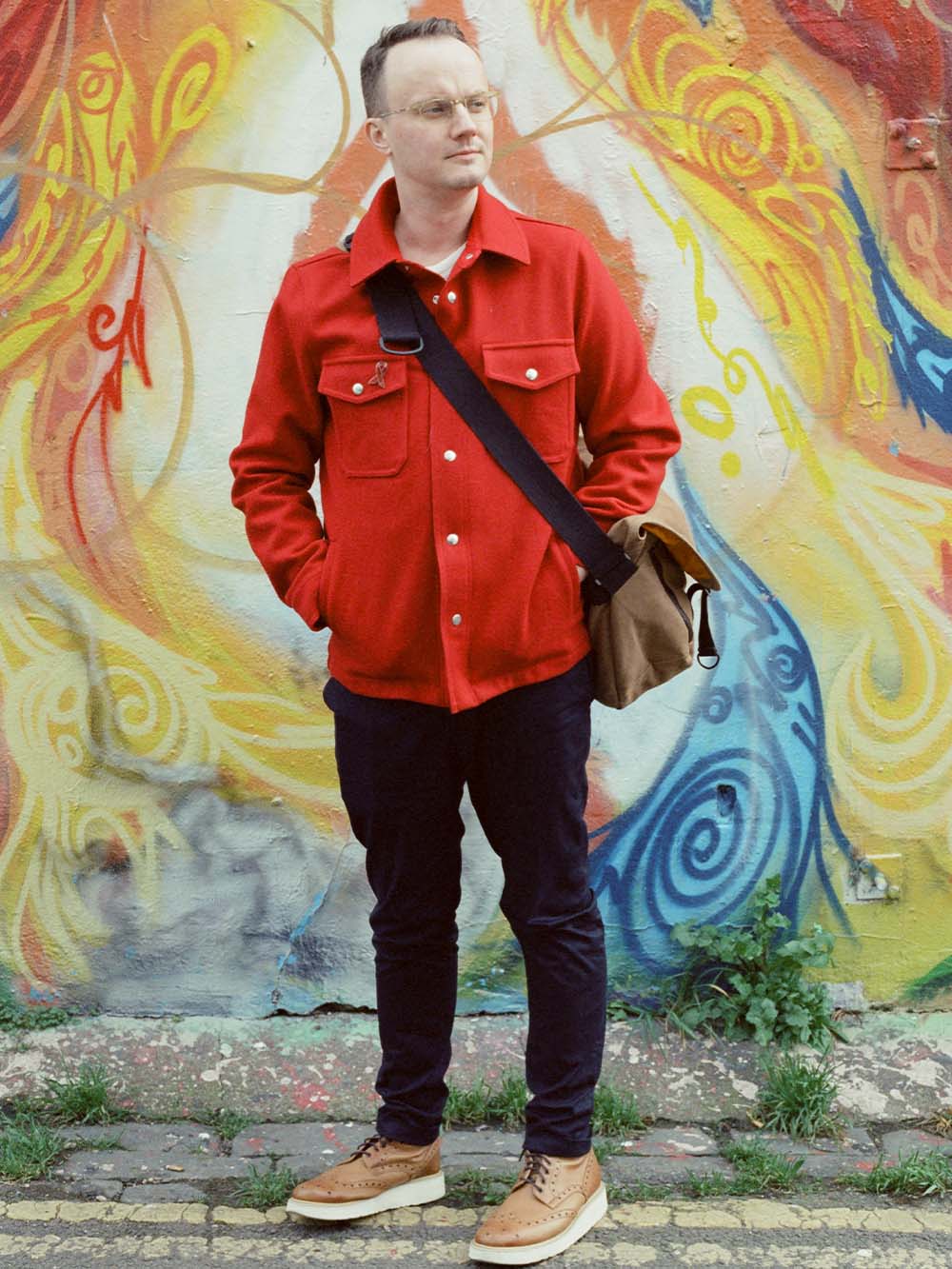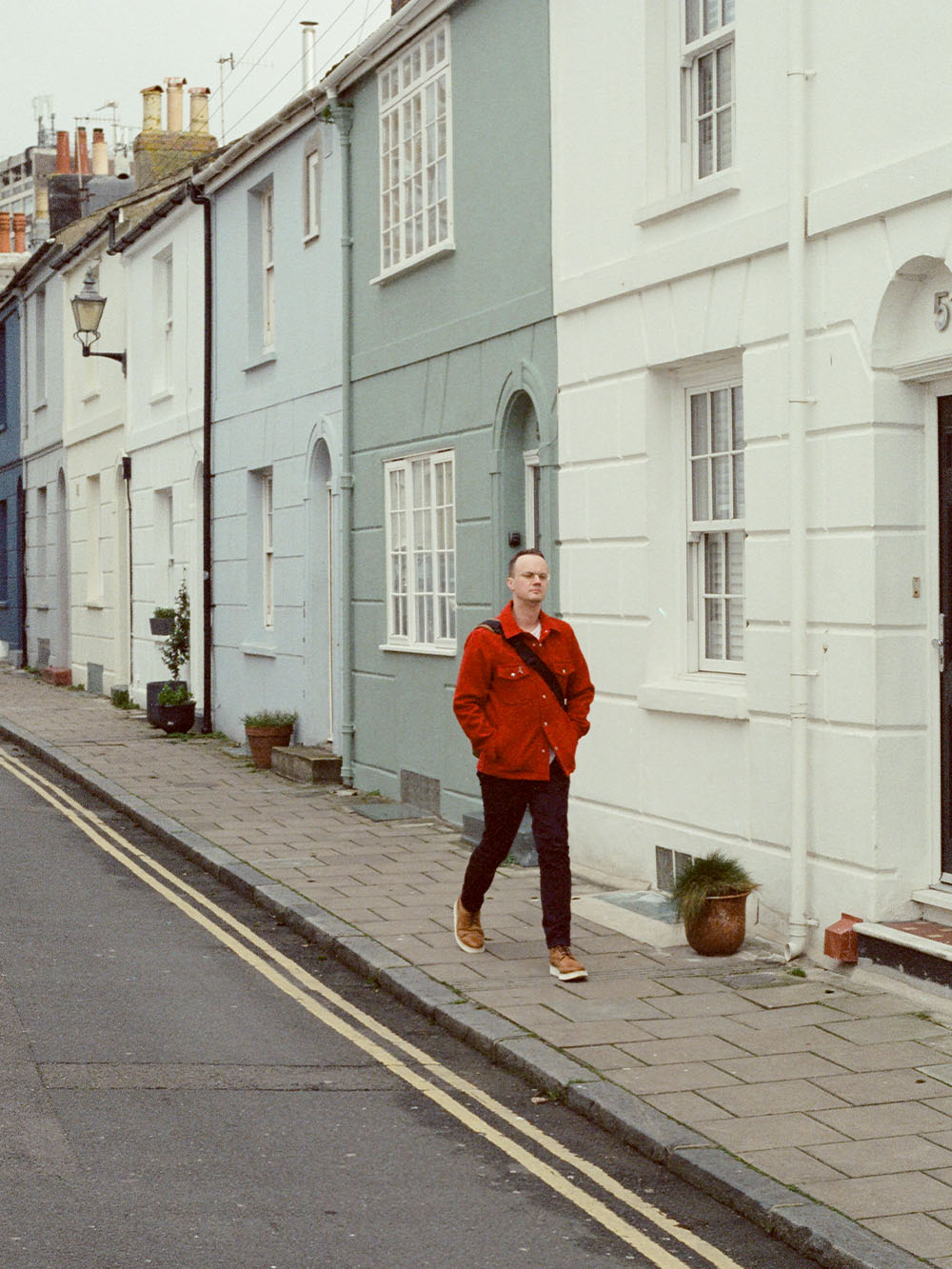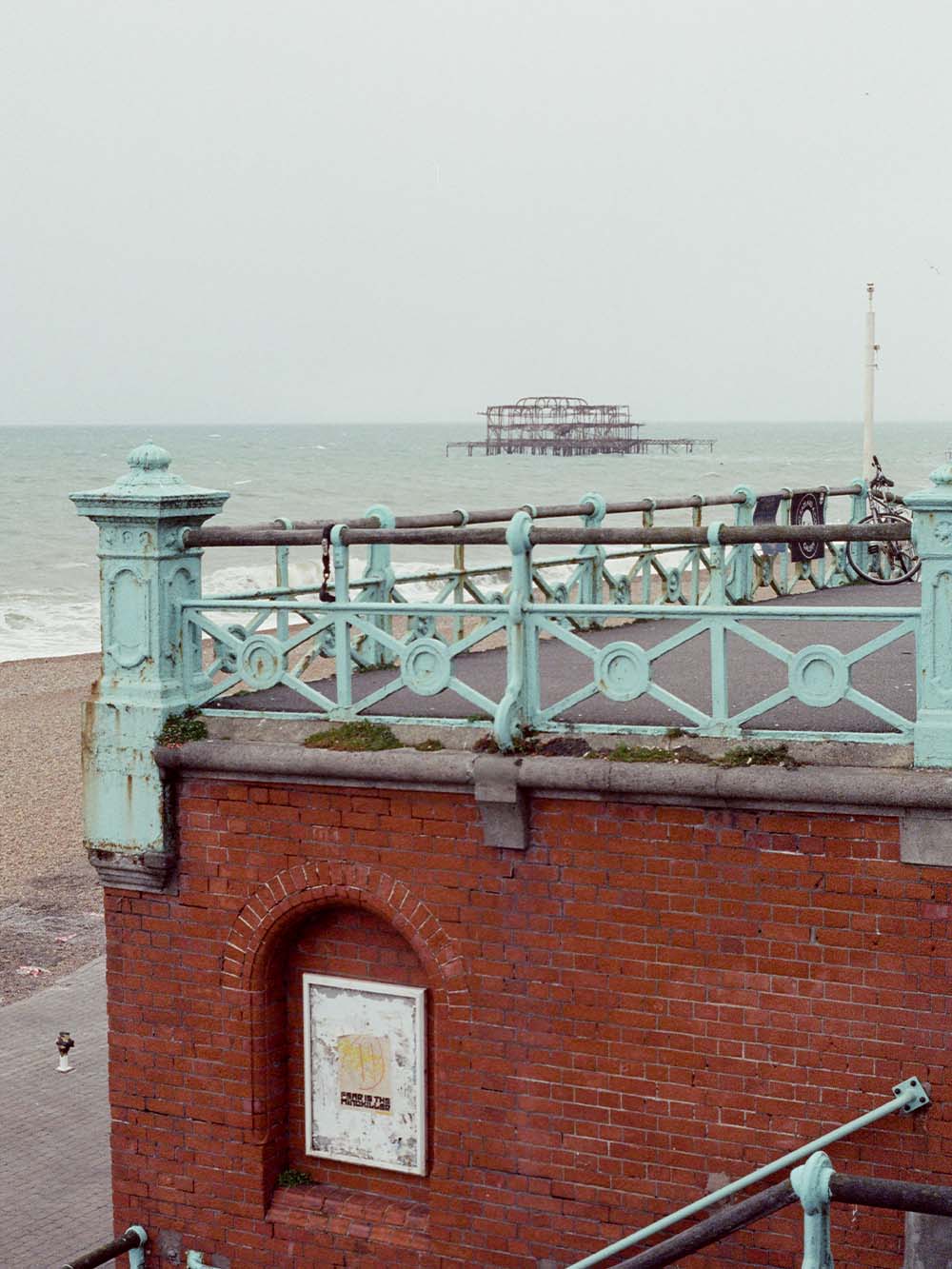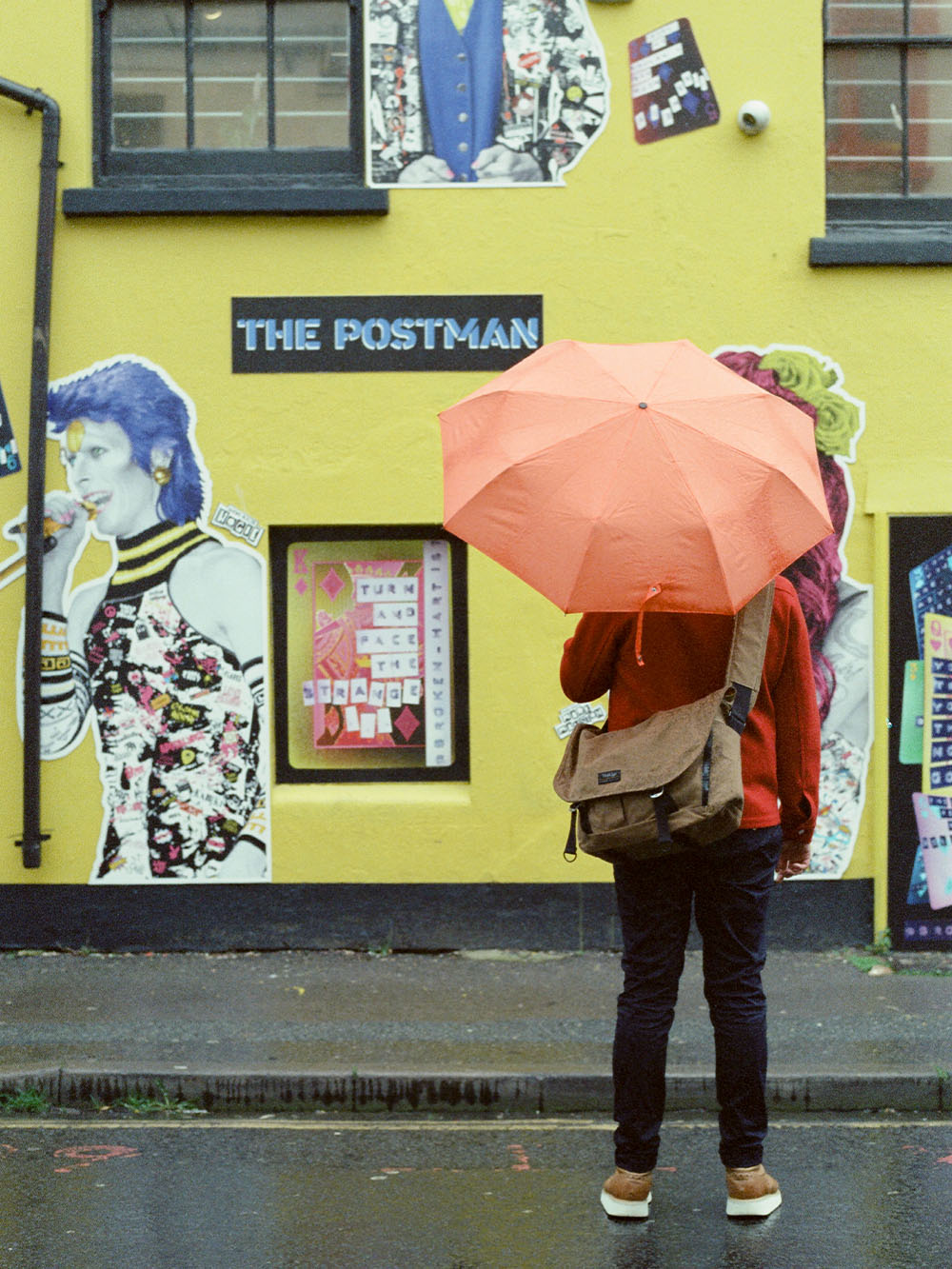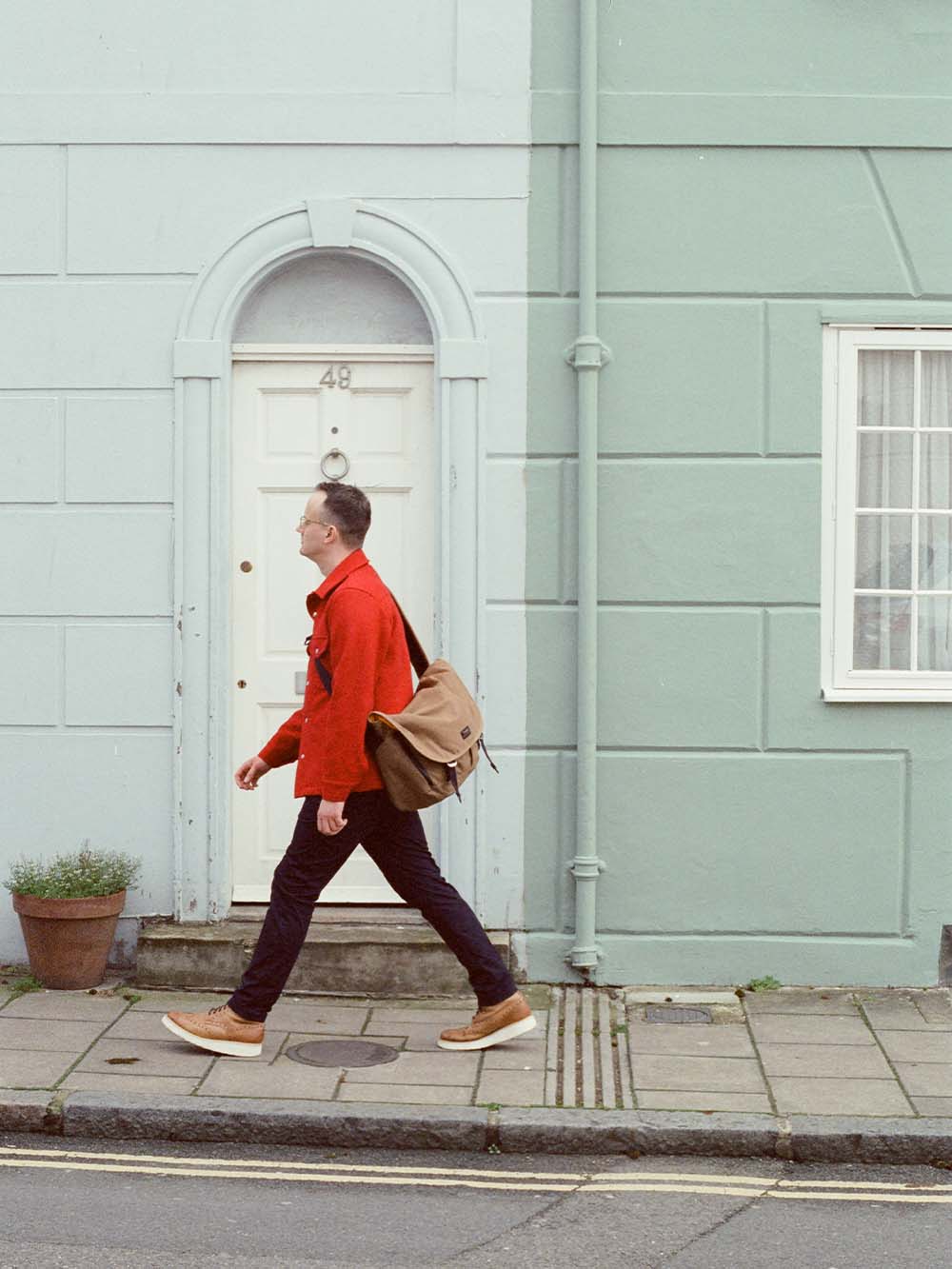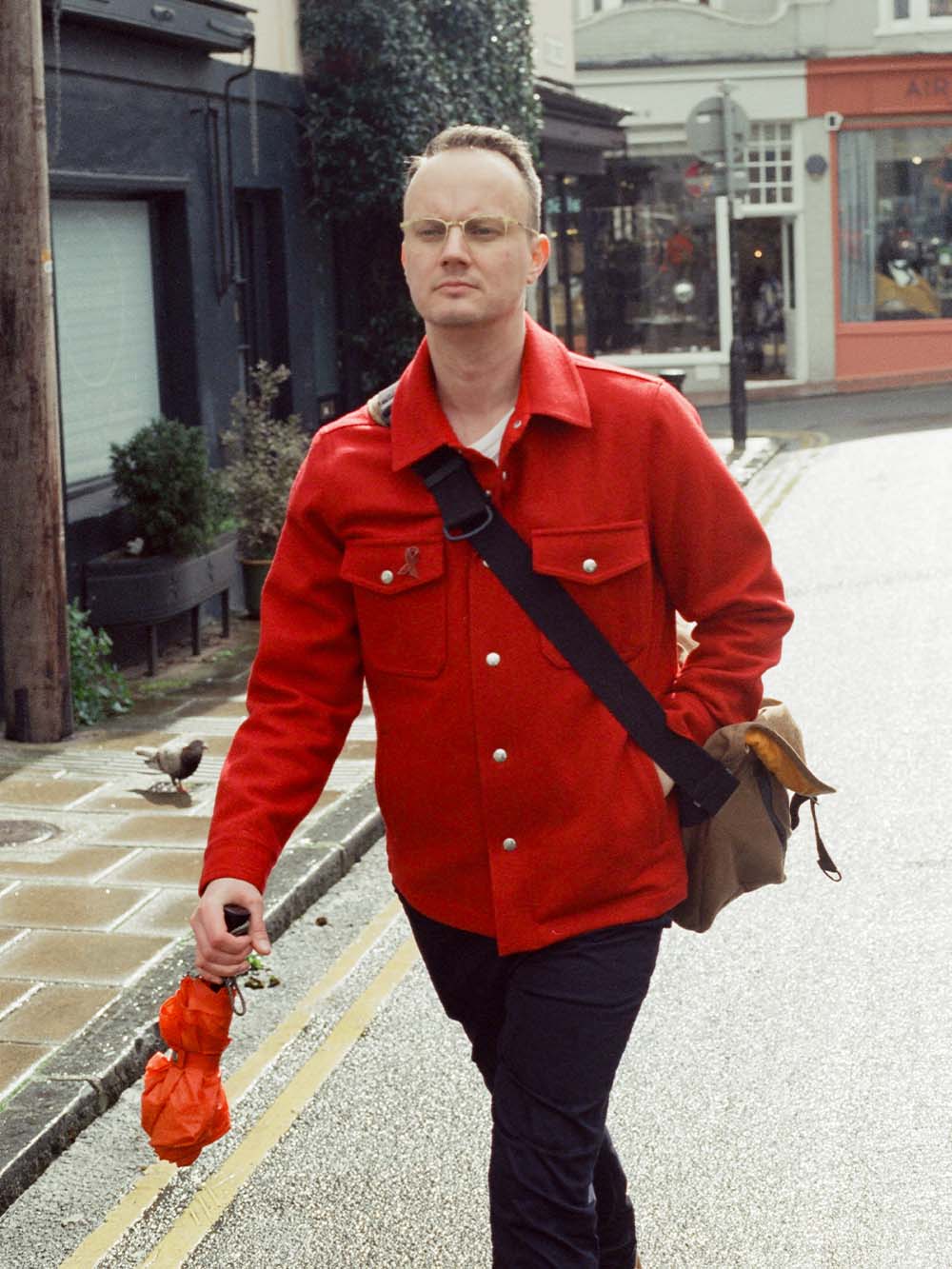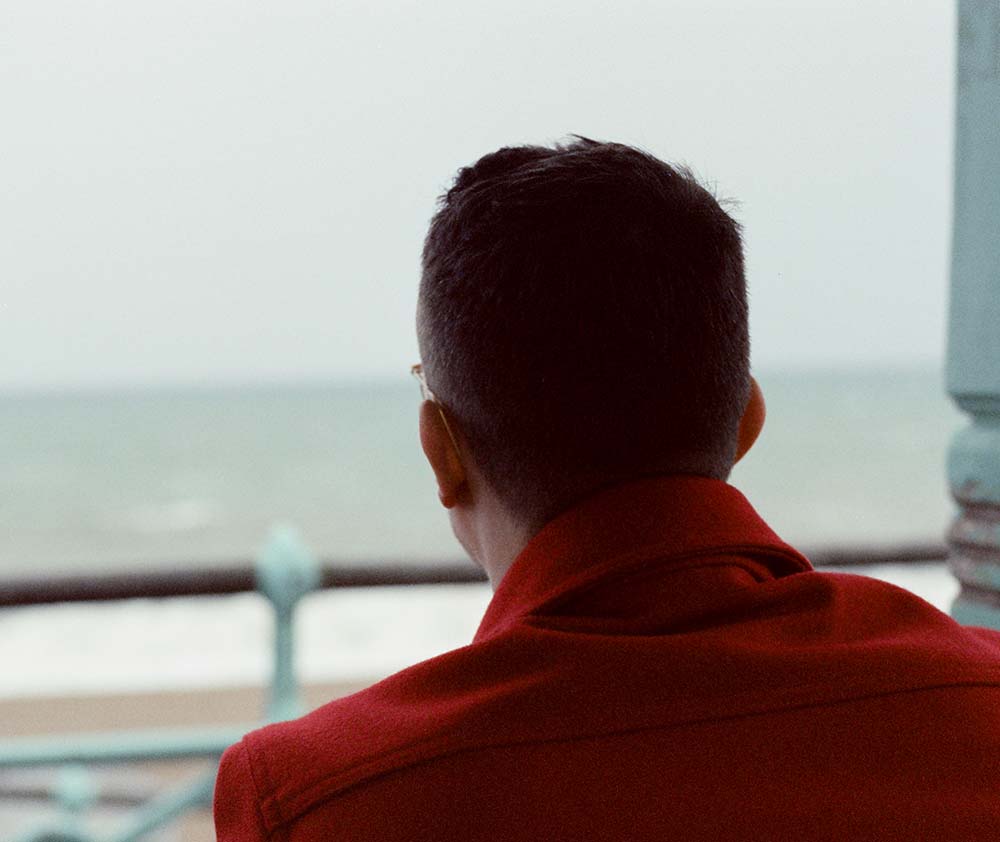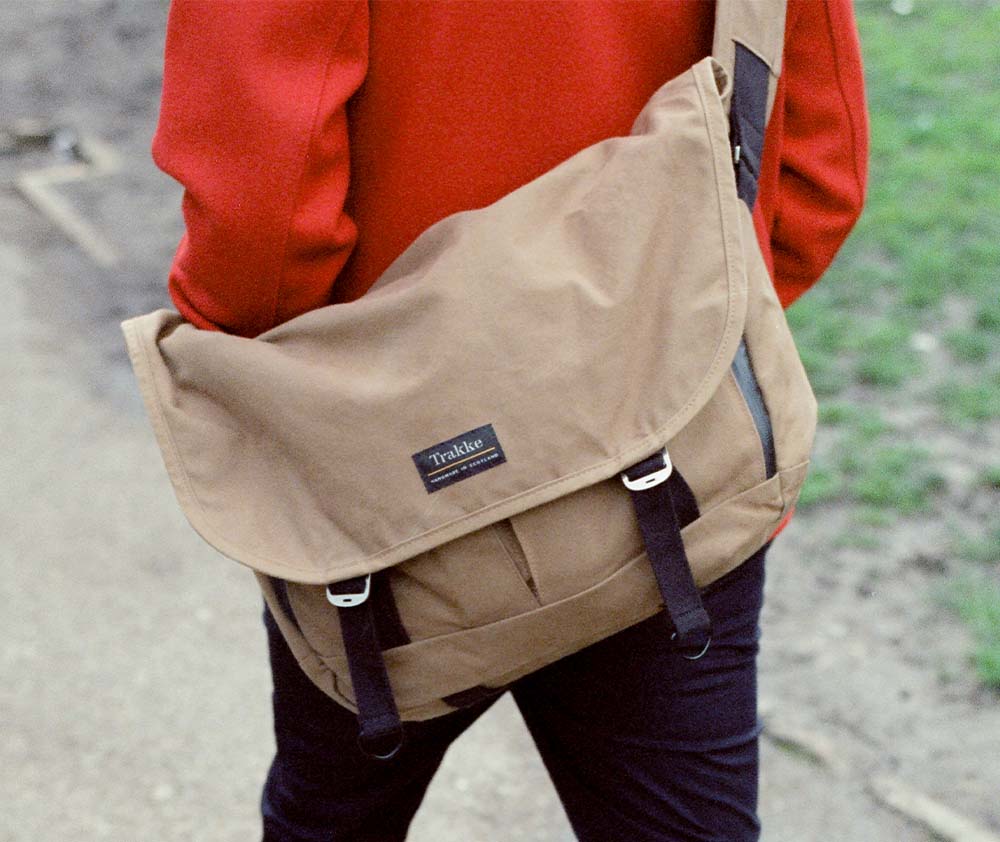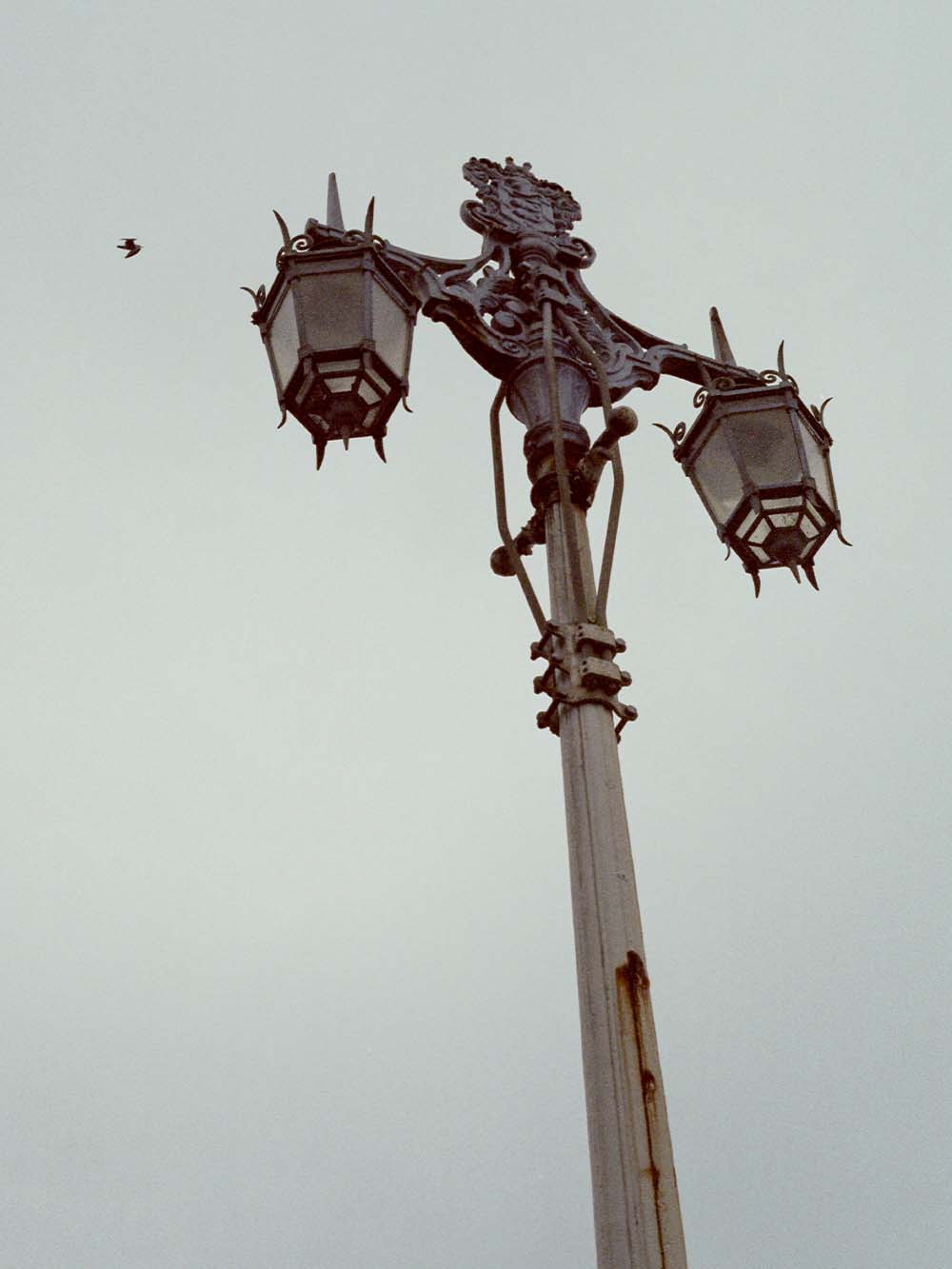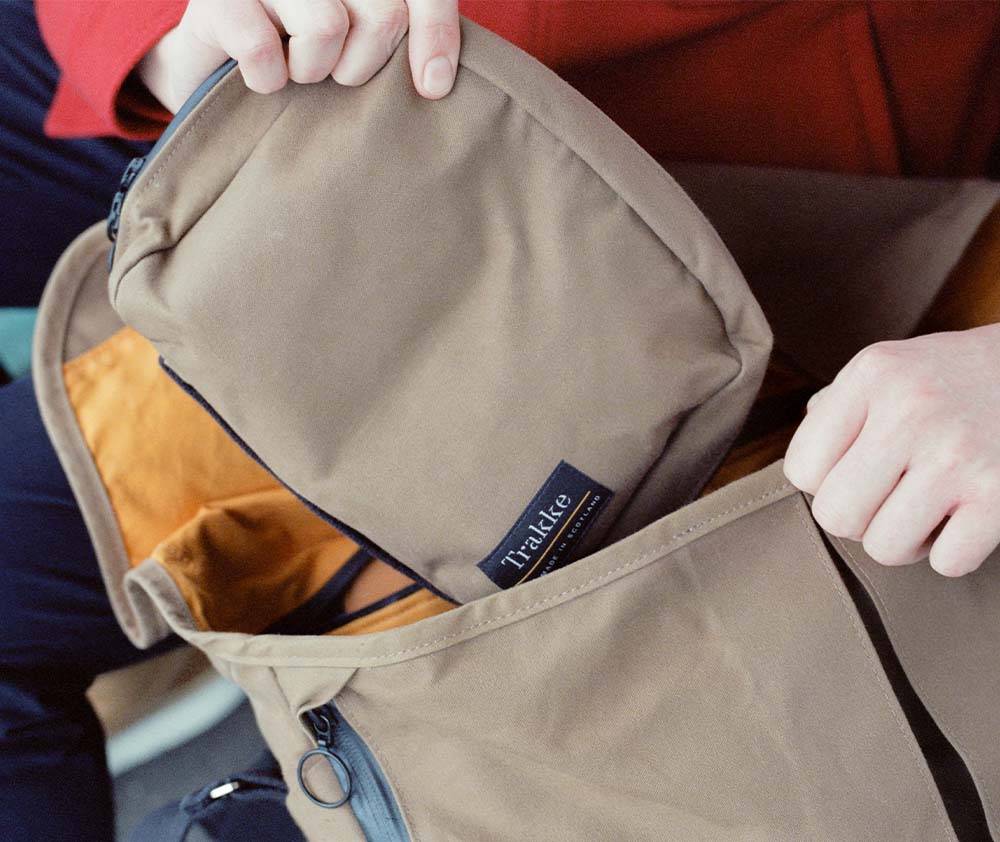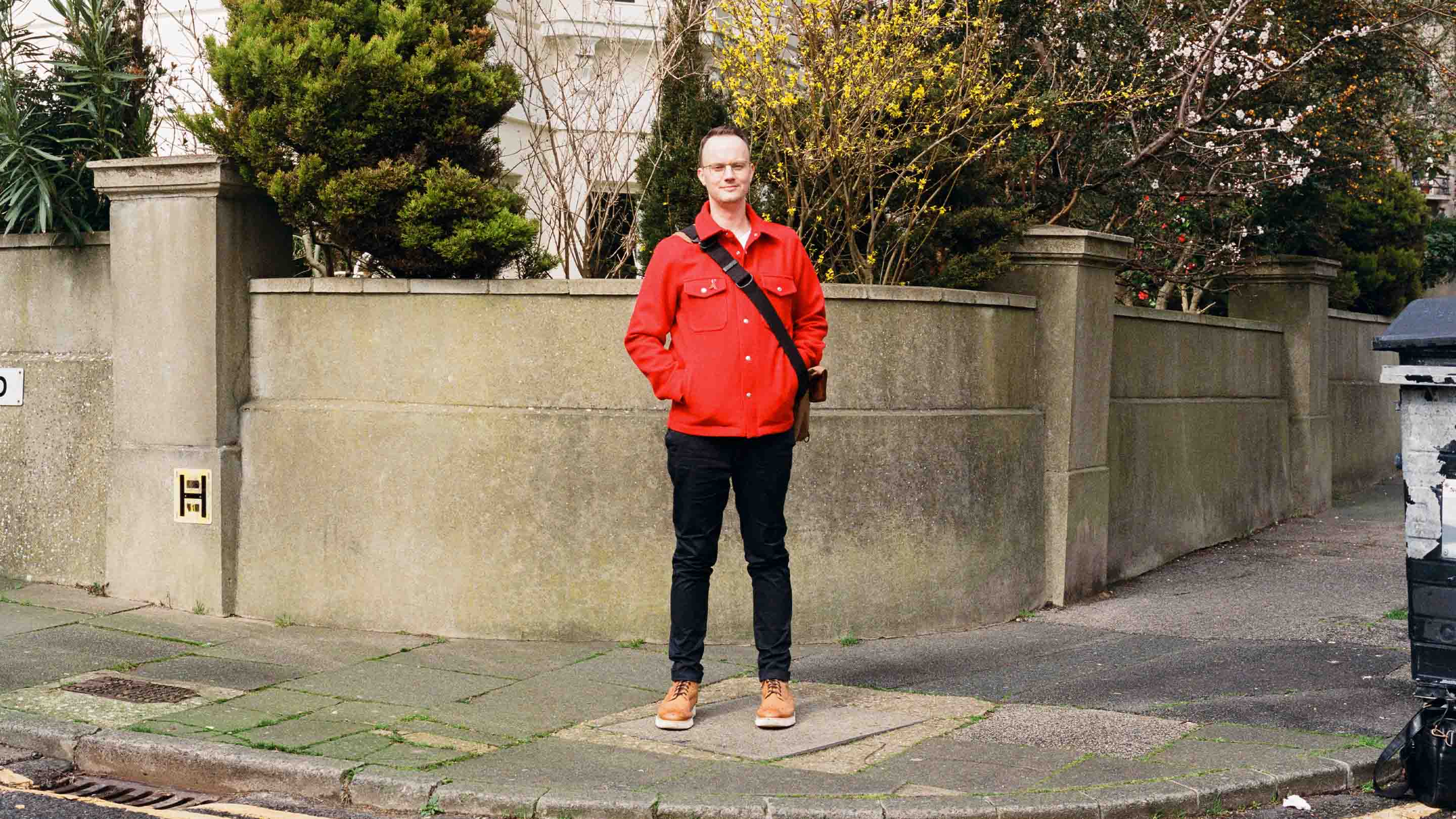
PETER BAMPTON
CUSTOMER STORIES PROJECT
We interviewed Peter at his home in Brighton.
Tell us about yourself. Where do you live what do you do?
I live in Brighton with my partner, we've been living here for about 18 months. I'm Head of Prevention and Testing at a HIV and sexual health charity based in East London and have been there for just over two years.
I also do some volunteering in my free time, including being a trustee at a local Brighton LGBTQ+ charity. I've also recently started volunteering with an organisation called Humen, which provides spaces for men to talk about their mental health.
What are you passionate about and what keeps you motivated?
One of my biggest passions is social justice and trying to address barriers to people accessing healthcare services. I originally got involved in the charity sector by volunteering at an HIV charity after having a really bad spell of mental health while I was at university and not really addressing it.
I had suicidal ideation, depression, anxiety, and was in a job I hated for about five years. I started accessing counselling services and they asked me a really blunt question: "How come you didn't follow up with your suicide plan?" I hadn't really thought about it and I said, “I don't want it to sound like martyrdom, but finding a sense of purpose and not feeling that I had achieved what I set out to do yet.”
I found purpose in volunteering, giving back, mentoring, and befriending people in the LGBTQ+ community. Through navigating my own poor mental health and working with other clients in sexual health, I realised there are a lot of institutional barriers, there's a lot of shame and stigma.
One of our ambitions is to end all new cases of HIV by 2030, and to think we can do that in our lifetime and I can play a role in that keeps me motivated. Also, still having a sense of hope when there's a lot of really bad shit happening in the world. *laughs*
Walk us through a typical day in your life?
Before heading into the train, if I have time I like to grab a coffee. There's a real great chain of bakeries called Flower Pot, and they do a coconut pain au chocolat, which is vegan. I'm food-motivated. I need that sugar and caffeine to get started. Then I head to the station and get the train and the tube to work.
A lot of our work is about partnership and thinking about the spaces where people feel comfortable and how we can take HIV and STI testing services into those spaces. We've done everything from testing in an empanada bakery in Hackney to a mobile testing van that goes into marketplaces and cruising areas.
On the train, I'll make sure my team is prepared for the day. And when I arrive, sometimes we'll have team meetings. Sometimes we may map out plans for say, LGBT History Month or Black History Month.
Sometimes, I'm delivering services like HIV awareness training to pharmacists and GPs to make sure that they're using the right language, terminology, and medication updates.
Then sometimes I am delivering the tests myself, which is really rewarding because you see the impact you can have on someone. There's a lot of stigma and shame that can be carried with cultural barriers, feeling that you're not doing the right thing or that you don't hold value to people.
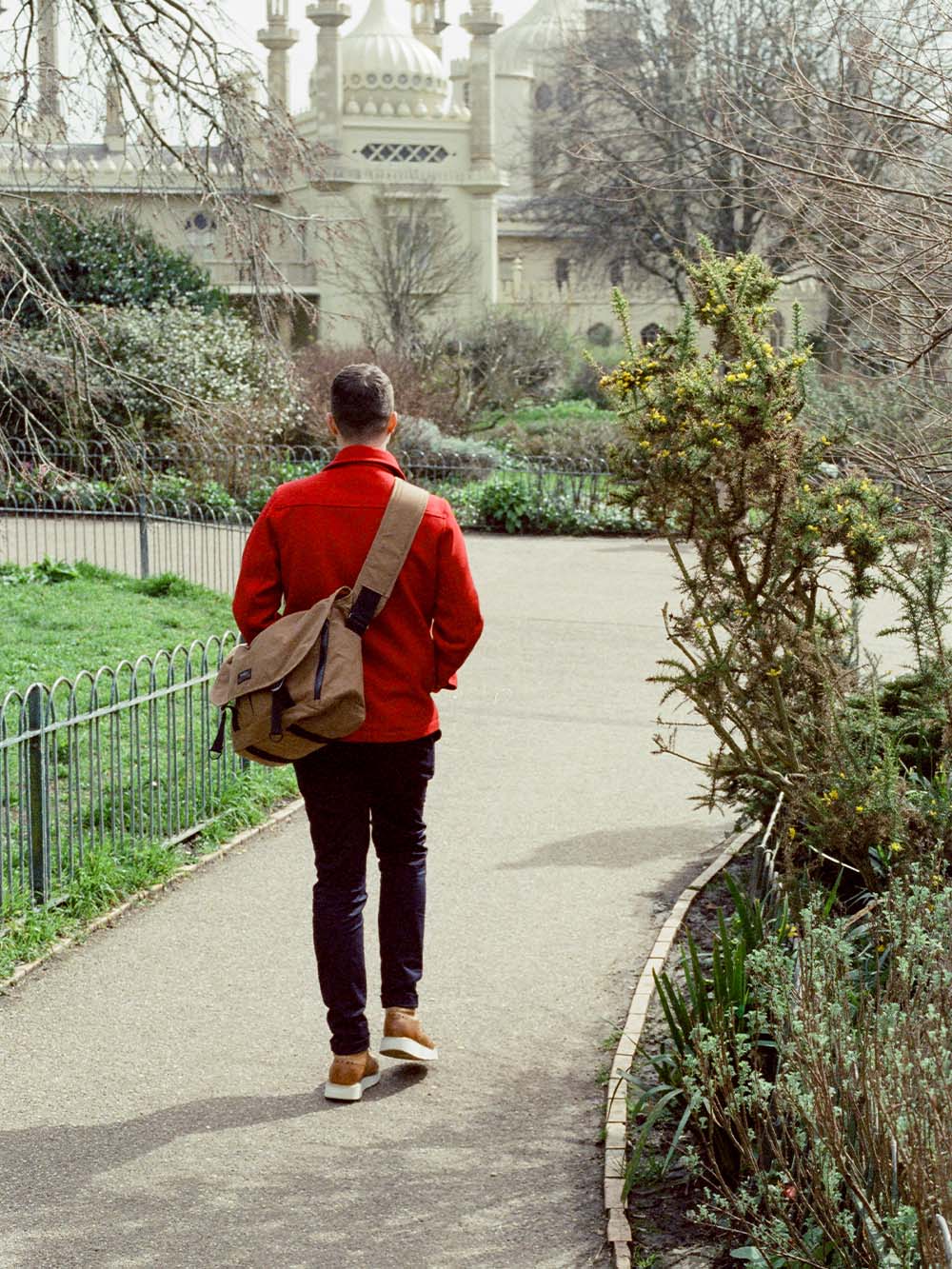
I also enjoy hanging out in London after work, there's a really good vegan Mexican chain called Club Mexican that do amazing burritos. They also do taco Tuesdays, all-you-can-eat tacos for 15 quid, plus frozen margaritas. Then I'll head back to Brighton and hang out with my partner. At the moment we're looking after a dog that we've known for about eight years from Borrow My Doggy, and I love just being able to chill out and unwind. Being able to do that in a really calm and comforting space like Brighton is great.
What Trakke bags do you have and how do they fit into your life?
I have the Wee Lug messenger, my last couple of bags have been backpacks. My partner and I weren't sure where we were going to be living, we might have moved to Oxford and I would potentially have a bike to commute into London for work. So what I really liked about the Wee Lug messenger was it's easy to throw over your shoulder. It's also easy to move around your body to be able to put your hands into the pockets, whereas sometimes with a backpack, you don't have that freedom of movement when you need to quickly grab something.
So it felt like the messenger was really good for me for that aspect. I'm always dipping in and out of different things - I might have some supplies for the testing service in my bag, or maybe papers that I need to read through during my commute. I need room for my lunch, a couple of pockets for flasks and drinks, and side panels so you can quickly grab your keys. The Wee Lug felt like a really good mix of simplicity and functionality.
I often found when I was looking for bags that companies were using animal products. As a vegan, I don't wear leather, so I love that Trakke's products avoid leather. Often when people think of a luxury product, they imagine leather, even if just a pull tab that's made of cowhide.
I also like that you are able to reproof the fabric, and over time it gets a lovely patina, with different textures and creases in the material. So rather than going for the black one, I went with a lighter colour so I could see the legacy in the bag over time.
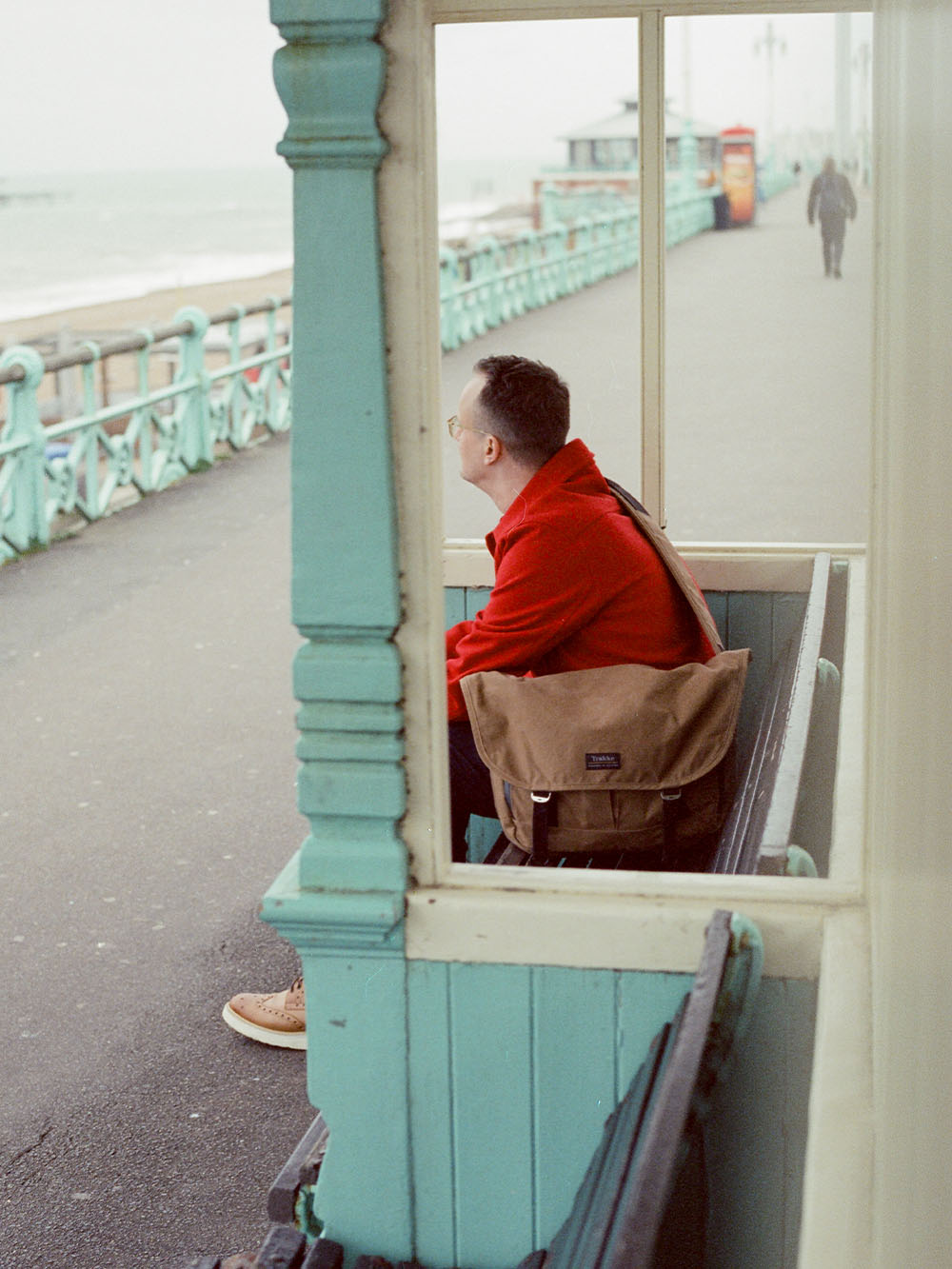
What's important to you when it comes to adding a backpack to your everyday routine?
I think versatility is really important. In my line of work, I'm able to dress down for going into the office and delivering services. That’s also something unique about Trakke bags - they don't feel too casual or too smart, it doesn't feel like you are wearing a business bag with your casual clothes. I prefer a minimalist style for the way I dress, so anything new has to fit into my existing wardrobe.
Functionality is really important as well. A bag needs to feel comfortable, usable, and wearable. If you are commuting or going in and out of different spaces, you want to be able to grab bits out and chuck them back in, while still feeling organised. Maybe that's part of my anxiety as well, needing to feel in control. So having those different compartments and having things in order is quite important to me. I think this is particularly important being in a line of work where there can be a lot of spinning plates.
What are you looking forward to in the year ahead?
Well, my partner and I have just bought our first flat together, so that feels like a new chapter for us. In terms of other things coming up, I think I feel a lot of preparedness to talk more openly about my experiences of having poor mental health and trying to inform best practices as someone with lived experience. It's really hard sometimes, when your health is not always on an upward trajectory, to feel like you are the best person to talk about improving health outcomes. So at the end of last year, I was involved in an NHS peer leadership academy, and since then I've been involved in different initiatives.
Right now I'm part of a working group for a Samaritans LGBT suicide policy statement. That will inform some of the decision-making around what works for us as members of the community, and guide investment in a social model of care rather than the gold standard being that you need to access an NHS-funded service.
I'm also part of a project called Peer Fest, which is about bringing people with poor mental health together to talk about their experiences, learn new skills, and share knowledge. So being able to use my own lived experience and being able to continue to give back to people feels really rewarding.
I'm also trying to continue to enjoy the simple things in life. There are so many independent places in Brighton to eat and drink while being by the sea, I'm just enjoying having a calm pace of life whilst also trying to change the system.


